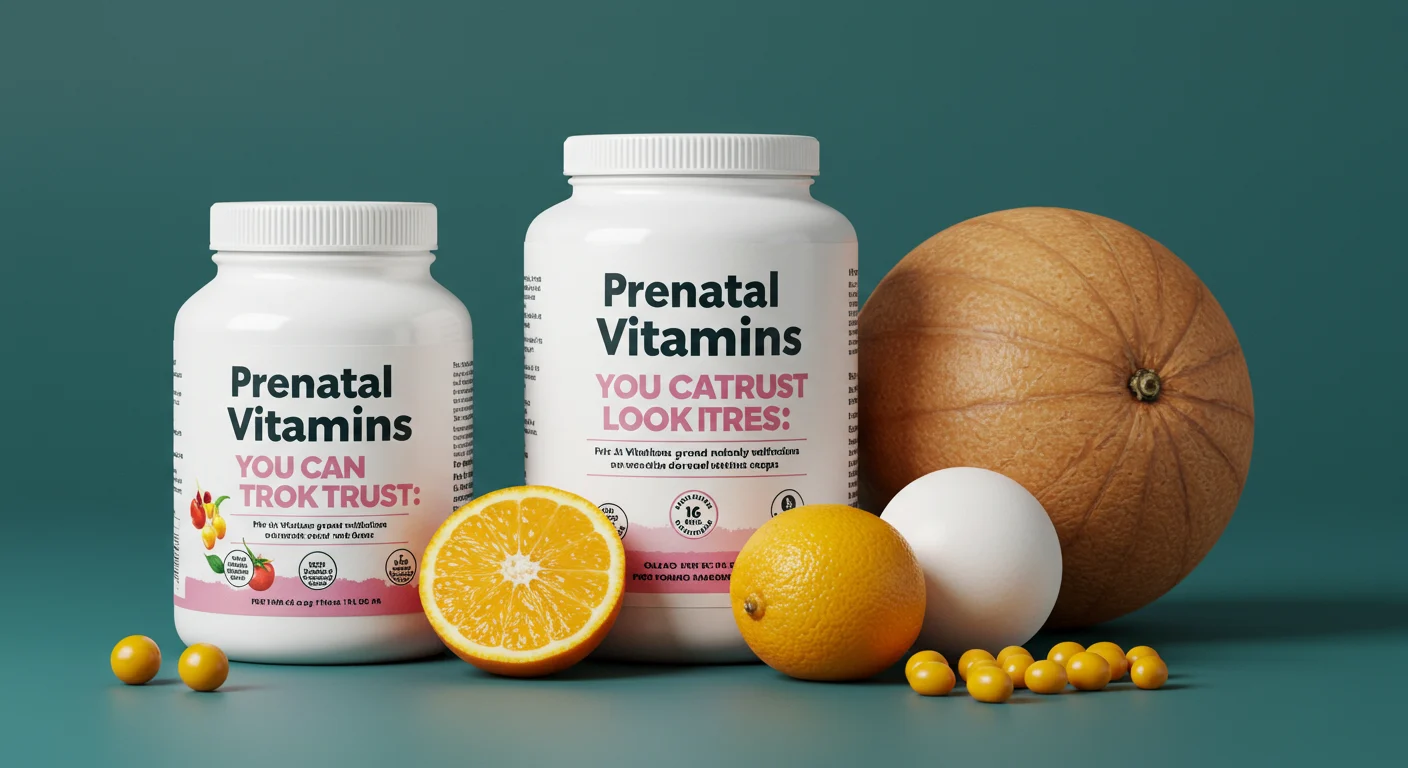
The Best Prenatal Vitamins Buying Guide
If you’re staring at twenty different bottles wondering what to trust, you’re not alone. Here’s the thing: labels can look impressive, but your body doesn’t care about marketing—it cares about forms, doses, and whether the company can prove what’s on the label is actually inside. If you’ve been Googling what is the best prenatal vitamin, let me walk you through what truly matters so you can pick one with confidence.
Quick reality check: there’s no single “best” prenatal
Believe it or not, the right pick depends on your labs, diet, and how your stomach handles things. The answer to “what is the best prenatal vitamin” shifts if you’re low on iron, if you avoid fish, or if you can’t tolerate big tablets. So I focus on core nutrients in the right forms, then layer in your specifics—because a great formula on paper isn’t helpful if you can’t actually take it.
The non‑negotiables your body actually uses
Folate first. Aim for about 600 mcg DFE of folate. Methylfolate (L‑5‑MTHF) is well‑absorbed, and plenty of folks prefer it. Folic acid still has strong outcome data too, especially in fortified countries. If you’re asking what is the best prenatal vitamin, pick one that clearly lists “Folate” with the amount in mcg DFE and the form spelled out.
Choline is a quiet MVP for brain and neural tube support. Target around 450 mg/day during pregnancy (many prenatals only include 50–150 mg). Food helps—eggs are clutch—but if your prenatal is light, consider a separate choline bitartrate or choline from phosphatidylcholine to bridge the gap.
Iron matters for most, typically ~27 mg elemental daily. If iron wrecks your stomach, look for gentle forms like iron bisglycinate and try splitting doses with food. If your ferritin is already robust or you’re prone to constipation, talk to your provider before pushing higher doses—precision beats guesswork.
Iodine at 150 mcg (often as potassium iodide) supports thyroid and baby’s brain development. If you’re on thyroid meds or have a thyroid condition, loop in your clinician. Vitamin D3 is another big one—600 IU is the baseline, but many people need 1,000–2,000 IU (or more) depending on bloodwork and sun exposure.
B12 (methylcobalamin or adenosylcobalamin) and B6 round out the B‑team; B6 around 10–25 mg can even help with queasiness. And DHA? Aim for 200–300 mg DHA daily. Some prenatals include it, others have you take a separate algae or fish oil. Either way, make sure it’s purified for heavy metals. That, more than any buzzword, nudges you toward what is the best prenatal vitamin for your actual needs.
Ingredients that can quietly trip you up
Vitamin A is the big watch‑out. You want beta‑carotene or a modest amount of preformed A (retinyl forms). Avoid megadoses of preformed A—no one needs that surprise. Herb blends and “proprietary” mixes are another flag; they sound fancy, but pregnancy isn’t the time for mystery ingredients. If you’re weighing what is the best prenatal vitamin, look for clean formulas without unnecessary botanicals or sugar‑heavy gummies that crowd out room for the essentials.
Form, dose, and how it actually feels to take
Real talk: the best formula means nothing if it makes you nauseous. Capsules are usually easier than giant tablets, and splitting the daily dose (AM/PM) often helps. Take iron away from big calcium meals, and sip ginger tea if mornings are rough. Gummies can be gentle, but they rarely fit full doses of iron, choline, or iodine—fine as a bridge, not as your only plan. In practice, the answer to what is the best prenatal vitamin is the one you’ll take consistently without a daily battle.
Trust signals that actually mean something
Third‑party testing is non‑negotiable. Look for badges like USP, NSF, or Informed Choice, or at least a clear statement about independent potency and contaminant testing (heavy metals, microbes). Bonus points if the brand shares lot‑specific certificates of analysis. cGMP manufacturing and transparent sourcing are the boring details that separate marketing from reality—and that’s exactly where I look when I’m deciding what is the best prenatal vitamin for a friend.
When to start—and what to pair it with
Ideally you start three months before trying, then carry through pregnancy and breastfeeding. Food still does the heavy lifting—protein, leafy greens, eggs for choline, dairy or fortified options if you do them, and seafood choices low in mercury. If your prenatal is light on DHA or choline, add a separate algae/fish oil or choline supplement. That combo, more than hunting for a unicorn bottle, is usually the practical answer to what is the best prenatal vitamin for you.
So…which one should you buy?
Here’s my simple filter: right folate form and dose, meaningful choline, sensible iron, 150 mcg iodine, vitamin D that matches your labs, third‑party testing, and a format you can actually swallow. If you want my current short list, check the latest prenatal review roundup on Consumer's Best—I keep it updated and explain who each pick fits best. No hype, just the straight goods so you can stop scrolling and start feeling prepared.
Quick friendly disclaimer: none of this replaces your clinician’s advice. If you have a health condition, elevated or low labs, or unique dietary needs, bring your prenatal label to your next appointment and fine‑tune from there.








